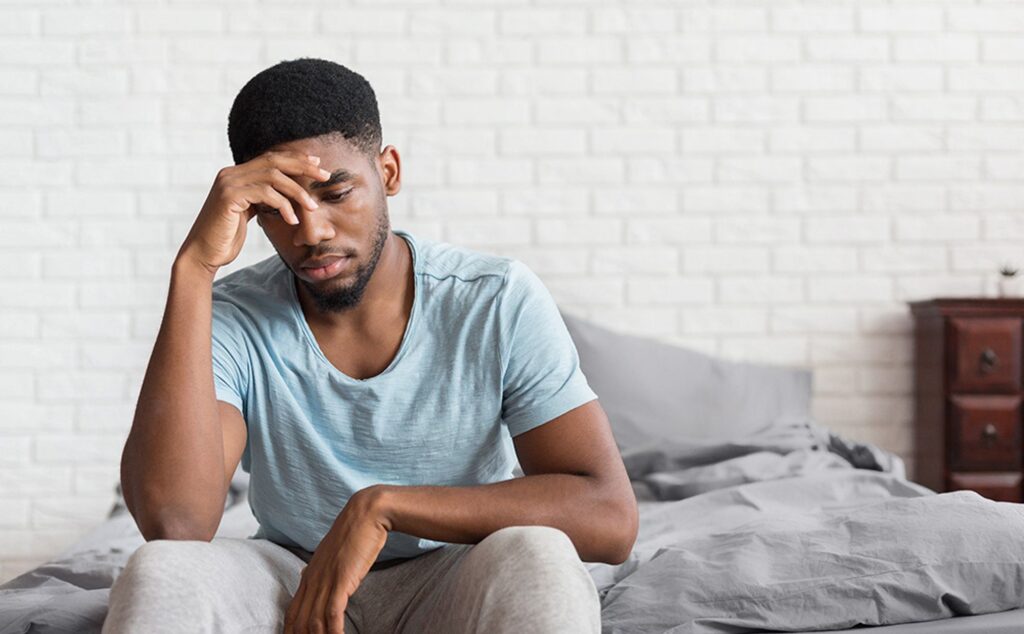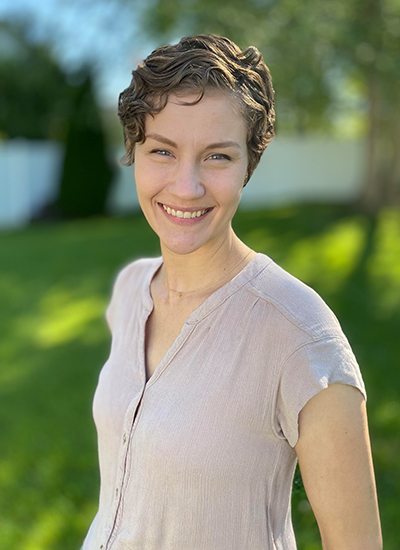
For plenty of people, both a fun night out or a relaxing evening in can involve an alcoholic beverage (or several). If you’ve ever spent an evening or two this way, you may already know good times involving alcohol can be followed by a wakeful night. Even the next night’s sleep can prove difficult when you’re battling nausea, a headache, and other hangover symptoms. In this article, we’ll dig into the “why” behind your hangover symptoms, alcohol-induced sleeplessness, and answer the question on all our minds: Does sleep help with a hangover?
Note: The content on Sleepopolis is meant to be informative in nature, but it shouldn’t be taken as medical advice, and it shouldn’t take the place of medical advice and supervision from a trained professional. If you feel you may be suffering from any sleep disorder or medical condition, please see your healthcare provider immediately.
Long Story Short
- You may not be able to sleep away a hangover entirely, but being well-rested before you drink may lessen your hangover symptoms the next day.
- Alcohol can help you fall asleep, but once it wears off, it can disrupt the rest of your night’s rest and prevent you from getting enough deep sleep.
- You can get better sleep after drinking alcohol if you hydrate and eat a snack before bed and you can help your hangover the next day by drinking plenty of fluids, avoiding caffeine, and sticking to your normal wake-up and bedtime routines.
Can Sleep Ease a Hangover?
When you know you’ve had enough drinks to push you over the hangover edge, you may wish you could sleep through all the upcoming symptoms. But can sleep fix your hangover? Though some factors may ease or worsen your symptoms (ever been stuck in traffic next to a construction site with a hangover-induced headache? Youch.), The National Institute on Alcohol Abuse and Alcoholism (NIAAA) says no cure exists for a hangover. (1)
Hangover symptoms can last 24 hours and include: (1)
- Nausea
- Vomiting
- Fatigue
- Headaches
- Attention and memory issues
Good sleep is hard to get as alcohol leaves your system, so it may be difficult to sleep away your hangover. (2) However, if you are well rested and don’t have a high sleep debt coming into a night of drinking, you’ll do better, says Dr. Robert Oexman, MD.
Sleep Debt
When you get fewer hours of sleep than your body needs one night, your body goes into “sleep debt.” You can pay down that debt by getting more sleep the next night or on the weekend. (3) Try out our sleep debt calculator to find out where you stand!
Why Alcohol Causes Hangovers
Drinking can pave the way for relaxation or fun, but just like most things in life, these positive effects don’t come free. As the alcohol level in your body dwindles back down to zero, your hangover symptoms will peak. (1)
The levels of alcohol that cause hangovers can be different for everyone, says Oexman. Hangover symptoms come from a couple of alcohol side effects: (4) (1)
- Dehydration: Alcohol suppresses a hormone called vasopressin that tells your body to hold on to fluids. With lower levels of vasopressin, your kidneys have a field day and make you pee a lot more than normal, which can cause dehydration. (5)
- Missing sleep: Even though you may fall asleep faster after a drink, alcohol disrupts your sleep the rest of the night. (More on that later!)
- Irritated stomach: The lining of your stomach isn’t a big fan of alcohol and often reacts with nausea or an upset tummy.
- General inflammation: Alcohol can cause inflammation all over your body, much like when you’re sick.
- Toxic byproducts: When your body digests alcohol, it makes a byproduct called acetaldehyde, which fades quickly, but is toxic and causes inflammation in several organs like your liver and brain.
Sounds fun, right? Let’s dig into why alcohol throws a proverbial wrench in your sleep and then we can talk solutions.
Why Can’t I Sleep After Drinking Alcohol?
Plenty of people say a buzzy beverage helps them fall asleep at bedtime. (4) So how could that be bad for your quality of rest? Alcohol helps you drift off faster, says Oexman, but the problem lies in the rebound effect: three to four hours after your drink, that sleepy feeling wears off and disrupts how well you sleep the rest of the night.
What’s more, most of your deepest sleep happens in the later part of your sleeping time, and alcohol “rebound” can fragment your slumber, preventing deep sleep, says Oexman. So, even if you think you slept all night, you may not feel like it the next day. (6)
What Is Deep Sleep?
We all sleep in four stages. The first two are lighter stages, but the last two offer benefits to your body and brain that you need. In these stages, you store memories, repair tissues, and build up your immune system. (7)
We can all probably agree that hangover symptoms are pretty uncomfortable… Severe nausea and headaches don’t mix well with restful snoozing and sometimes hangovers can affect the following night of sleep as well. (1)
Phew, this closes out the bad news portion of the article. Let’s talk about some solutions for better sleep after imbibing.
How to Sleep Better After Alcohol
Sleeping off a hangover may feel like the right way to help yourself, but getting those restorative zzzs may pose a challenge. The best way to get good sleep is to avoid drinking too much, says Oexman. But if that ship has sailed and you’re worried about your sleep, you can do a few things to improve your slumber and lessen hangover symptoms.
The NIAAA tells us to take hangover remedies with a grain of salt, as none have been studied well enough to prove they work. (1) However, if you look at the causes of a hangover, you can see some possibilities. You can’t do much about toxic byproducts, but you can address dehydration, for example. These tips can help you sleep better after party time or when dealing with hangover symptoms the next day.
Hydrate, Hydrate, Hydrate
“Make sure you hydrate before you go to bed,” says Oexman, who adds that, when you guzzle down a few cups of water after alcohol consumption, you can help curb some of those dehydration symptoms. He also recommends hydrating heavily as soon as you wake up, and throughout the day.
Say Yes to Electrolytes and No to Caffeine
Electrolyte drinks work great, says Oexman, as long as they aren’t caffeinated. Caffeine is a diuretic, which means it makes you pee more. So if you jump on the caffeine right when you wake up, you’ll slow your rehydration.
Eat Something
“Rather than going to sleep immediately when you get home, stay up and try to get a little bit of nutrition in you,” says Oexman. Alcohol can disrupt how your body uses sugar, so Oexman recommends eating something before bed to help stabilize your blood sugar. (8)
Stick to Good Sleep Hygiene
Good sleep hygiene helps cue your body that it’s time to wind down and prepare for a night of rest. This includes habits like going to bed and waking up at the same time each day, avoiding light from electronics before bed, and steering clear of caffeine or alcohol close to bedtime… ironic, right? (9)
The best way to sleep better after alcohol use is to drink in moderation. (1) If you cut yourself off a few hours before bedtime, you’ll give your body a little longer to get it out of your system before you hit the sheets. (4) Following these tips may give you a better chance of sleeping better all night.
A Note on Tylenol and Alcohol
When acetaminophen (Tylenol) mixes with alcohol in your system, it can damage your liver, so be sure to steer clear of combining the two. (10)
How Much Should You Sleep After a Hangover?
Though you may feel tempted to sleep the day away when you have a hangover, it’s best to try to stick to your normal wake-up time, says Oexman. Experts recommend adults sleep between seven and nine hours each night, and this doesn’t change with alcohol consumption. (11)
Oexman recommends that even if you have a hangover, your best bet for quick recovery is to get up at your normal time and get out in the sun. If that thought makes you grimace, you can always wear your darkest pair of sunglasses. Rather than sleeping until the afternoon, says Oexman, you’ll recover quicker if you get up, hydrate, and get moving.
FAQs
Can sleep help with hangover nausea?
What is a sleep hangover?
A sleep hangover describes sleeping past the time their circadian rhythm wants them to wake up, says Oexman, who adds when you push past that internal clock, you can feel exhausted all day.
How can you prevent a hangover before you go to sleep?
Drink plenty of decaffeinated fluids and eat a snack before bed, says Oexman, who explains these will help prevent the dehydration and blood sugar disruption that come with alcohol intake. However, do not drink too much fluid before sleep, which can increase urination and disrupt sleep.
The Last Word From Sleepopolis
When you have a hangover, you may be especially motivated to find a solution for fewer symptoms and more sleep may seem like the obvious solution. If you can, cut your drinks off earlier for better sleep and faster recovery. People respond differently to alcohol, so experiment with different cut-off times to optimize your sleep and minimize hangover symptoms.
Sources
- Hangovers | National Institute on Alcohol Abuse and Alcoholism (NIAAA). Accessed January 2, 2024. https://www.niaaa.nih.gov/publications/brochures-and-fact-sheets/hangovers
- Verster JC, Donders JA, Boogaard AS, Bruce G. Predictors of Hangover Frequency and Severity: The Impact of Alcohol Consumption, Mental Resilience, Personality, Lifestyle, Coping and Mood. Journal of Clinical Medicine. 2023;12(11):3811. doi:10.3390/jcm12113811
- Sleep Deprivation and Deficiency – How Much Sleep Is Enough | NHLBI, NIH. Accessed November 4, 2023. https://www.nhlbi.nih.gov/health/sleep-deprivation/how-much-sleep
- Ayre E, Scholey A, White D, et al. The Relationship between Alcohol Hangover Severity, Sleep and Cognitive Performance; a Naturalistic Study. Journal of Clinical Medicine. 2021;10(23):5691. doi:10.3390/jcm10235691
- Cuzzo B, Padala SA, Lappin SL. Physiology, Vasopressin. In: StatPearls. StatPearls Publishing; 2023. Accessed January 9, 2024. http://www.ncbi.nlm.nih.gov/books/NBK526069/
- Devenney LE, Coyle KB, Roth T, Verster JC. Sleep after Heavy Alcohol Consumption and Physical Activity Levels during Alcohol Hangover. Journal of Clinical Medicine. 2019;8(5):752. doi:10.3390/jcm8050752
- Patel AK, Reddy V, Shumway KR, Araujo JF. Physiology, Sleep Stages. In: StatPearls. StatPearls Publishing; 2023. Accessed January 6, 2024. http://www.ncbi.nlm.nih.gov/books/NBK526132/
- Miyagi S, Takamura T, Nguyen TTT, et al. Moderate alcohol consumption is associated with impaired insulin secretion and fasting glucose in non-obese non-diabetic men. Journal of Diabetes Investigation. 2021;12(5):869-876. doi:10.1111/jdi.13402
- Baranwal N, Yu PK, Siegel NS. Sleep physiology, pathophysiology, and sleep hygiene. Progress in Cardiovascular Diseases. 2023;77:59-69. doi:10.1016/j.pcad.2023.02.005
- Alcohol-Medication Interactions: Potentially Dangerous Mixes | National Institute on Alcohol Abuse and Alcoholism (NIAAA). Accessed January 6, 2024. https://www.niaaa.nih.gov/health-professionals-communities/core-resource-on-alcohol/alcohol-medication-interactions-potentially-dangerous-mixes
- How Sleep Works – How Much Sleep Is Enough? | NHLBI, NIH. Accessed October 21, 2023. https://www.nhlbi.nih.gov/health/sleep/how-much-sleep
- Circadian Rhythms. Accessed January 6, 2024. https://www.nigms.nih.gov/education/fact-sheets/Pages/circadian-rhythms.aspx
- Antacids – StatPearls – NCBI Bookshelf. Accessed January 6, 2024. https://www.ncbi.nlm.nih.gov/books/NBK526049/
- Oexman, Robert, MD. Personal interview. January 3, 2023.



























